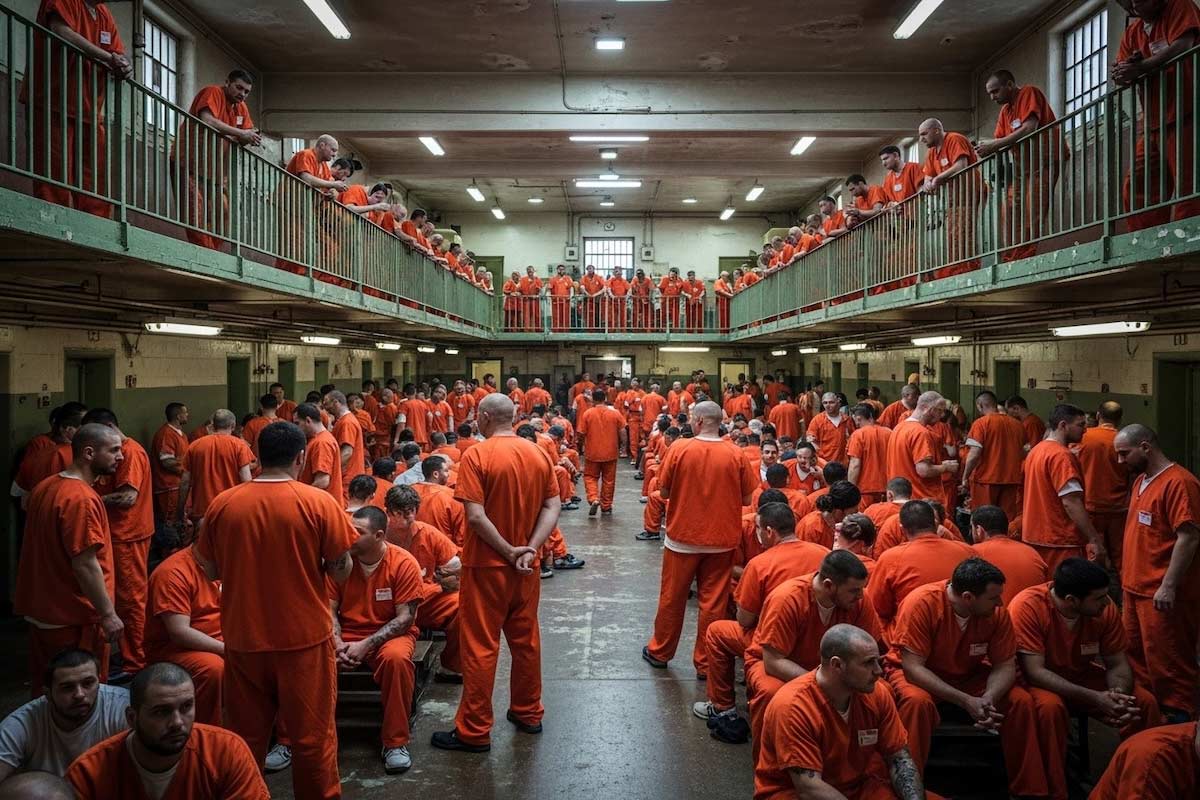UNO's Nebraska Center for Justice Research Addresses Prison Crowding and Classification: Insights from Legislatively Funded Project
- published: 2024/02/01
- contact: Debbie Vihstadt - College of Public Affairs and Community Service
- phone: 402.554.3033
- email: dvihstadt@unomaha.edu
- search keywords:
- research
- Nebraska Center for Justice Research

In response to prison crowding concerns, the Nebraska Department of Correctional Services (NDCS) initiated a project in August 2021, supported by Legislative Bill 380 (LB380). Partnering with the Nebraska Center for Justice Research (NCJR), the NDCS aimed to assess the classification and progression of individuals within the prison system. This legislatively funded project sought to identify inefficiencies within the NDCS system, particularly focusing on classification, and propose areas for improvement.
The project unfolded in two phases, with Phase I involving a comprehensive process evaluation. This phase delved into the intricacies of the NDCS prison system, examining individual issues and the impacts of crowding on specific facilities. Building on the insights gained from Phase I, Phase II focused on three critical areas identified for further investigation.
Prison Growth and Classification
NCJR explored the correlation between prison growth and the classification and promotion of incarcerated individuals. The findings highlighted a growing crowding issue, with temporary relief provided by expanded bed space in existing facilities. "Facing challenges in accommodating incoming individuals, Nebraska is struggling to provide adequate long-term rehabilitative programs due to time constraints," stated Dr. Zachary Hamilton, who led the research on this report for NCJR. "The shortage of open beds post-evaluation further compounds capacity issues, with some facilities exceeding 300% and others ranging from 123% to 150% over capacity."
The study emphasized that underlying causes, such as longer sentences, continue to drive the increase in the prison population. The results underscored the need for strategic measures, beyond prison expansion, to address the root causes of crowding.
Facing challenges in accommodating incoming individuals, Nebraska is struggling to provide adequate long-term rehabilitative programs due to time constraints."
Safety and Management Concerns in Mixed Custody Facilities
The project addressed safety concerns arising from the utilization of mixed custody housing units to cope with crowding. By merging security levels within housing units, including combinations of maximum and medium-security levels, the study identified heightened rates of serious and violent misconduct. The findings called for of the elimination and/or reduced use of mixed custody units, particularly as the Nebraska Legislature allocates funds for a new facility to replace the Nebraska State Penitentiary.
"The report highlights the need to separate custody classifications, such as medium and maximum security, as mixing them increases infractions and prolongs incarceration. It also recommends exploring alternatives like community programs for low-risk offenders and those with shorter sentences." Dr. Hamilton stated.
Impact of Short Sentences on Crowding and System Flow
NCJR examined the overlooked population of individuals with short sentences, commonly known as "short timers." The study revealed that this group, receiving limited rehabilitative programming, contributes to crowding and poses challenges to the overall system flow. Recommendations included exploring alternative housing solutions for short timers and strategically reducing their presence within NDCS facilities to alleviate crowding.
The project's results led to recommendations from NCJR, proposing a comprehensive strategy to address the challenges of prison crowding. The center suggests a limitation on new prison construction to 'infrastructure replacement,' emphasizing the need for the legislature to consider a range of strategic options, including sentence reductions and alternative approaches to prison incarceration.
UNO's Nebraska Center for Justice Research, through its legislatively funded project, has provided insights into the complexities of prison crowding and classification. The findings and recommendations offer valuable considerations for policymakers, encouraging efforts towards a more efficient, safe, and rehabilitative correctional system in Nebraska.
Could an Algorithm Help Solve Prison Overcrowding?
Sept. 3, 2025
UNO and CU Boulder researchers are developing a data-driven parole decision tool aimed at safely reducing overcrowded prison populations while maintaining public safety.
